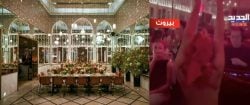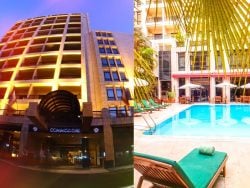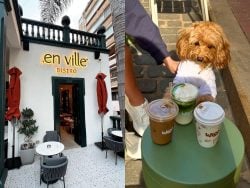Horsh Beirut: Public Space, Private Rules
For over 20 years, Horsh Beirut, a 40,000-square-meter pine forest on the edge of the capital, has largely been closed off to the Lebanese public. Now, a campaign spearheaded by the local youth NGO, Nahnoo, to reopen the massive green space has sparked a complex debate about the municipality’s responsibility towards the park and the public’s ability to help preserve it.
To enter Horsh, you must obtain permission from the Beirut municipality. But even then, you must be over 35-years-old and married, according to Nahnoo Executive Director Mohammad Ayoub. There’s also the tacit understanding, activists say, that foreigners can simply flash their passport at the gate and gain entrance into the park.
“We think this is discrimination. It’s public property. Everyone should have the right to enter whenever they want and use it,” says Hala Moussawi, project coordinator at Nahnoo.
The NGO has been working for a year now to campaign for the park’s reopening; an effort organizers say is driven by the desire to improve the quality of life for the Lebanese public, and in particular, young people. “The rate of youth dropping out of schools is increasing, and we’re also seeing an increase in drug use as well as crime,” says Ayoub. “Not having a space – especially a public space – this is one of the reasons we have all these problems… Space is not just about having a place to play, it’s about having a chance to express yourself. It’s about tackling problems through healthy activities… but there isn’t space for youth to do this.”
The park was damaged during the country’s 1975-1990 civil war and then closed in 1992 under an initiative from the French embassy, in coordination with the Beirut municipality, in an effort to repair the space. France followed through with its part of the deal to replant trees and other green life, but the municipality has still not taken care of its duties to restore the infrastructure, such as installing garbage bins and renovating the bathrooms, says Ayoub.
Beirut Mayor Bilal Hamad maintains his resistance to reopening the park is mainly due to fears that the Lebanese people will “abuse” it. But Ayoub contends that “Horsh remains closed because of the municipality, not because of the people… They are just giving excuses. The municipality doesn’t want to pay for cleaning and security. This is the right of the people.”
Moussawi says she understands concerns that the Lebanese aren’t prepared to take care of public space, and that’s why the NGO is developing an awareness campaign to educate residents about their duties as citizens to help maintain the natural environment. “People haven’t been given the chance to practice public space, which is one of the reasons we want to open the park – so they can practice being civic.” “But you can’t just say people are bad and don’t deserve to enter the park.”
Still, the campaign has its critics. Ibrahim Lahham, a 23-year-old architect and self-proclaimed environmentalist, created a group on Facebook to protest the reopening of the park. “First of all, it’s a natural reserve. It’s not a park. It’s not a garden. It’s not our backyard. It’s not something to mess with… it’s our last hope; it’s something we have to keep for the next generation instead of jeopardizing it now by opening it,” he says.
Furthermore, Lahham believes, in line with the mayor’s argument, that the public isn’t equipped with the knowledge to preserve it. “You cannot just tell people, ‘here’s the Horsh park, start practicing your social skills on it.’ It’s prone to damage… people need at least another 10 years to understand how to treat it.”
Critics have accused Lahham and others who share his views of being racist. But the architect defends his position: “It’s just the reality. We know ourselves. We know how we treat our society, how we treat the environment. We don’t have the public awareness to do it.”
“Honestly, if they open Horsh, I’m going to be the first one who goes in. We all want green space in Beirut. But in my opinion, we should demand the municipality and government open new areas, to create new parks and more green spaces instead of depleting the last one we have,” says Lahham.
Ayoub believes Horsh can serve as an important first step in developing future public space projects. “We have no models. Horsh is a good space to bring people together from different sects and economic classes and to make a good law about protecting the environment.”
At a town hall-style debate organized by Nahnoo in February, Mayor Hamad pledged to open the park to the public by the end of 2012, but only under what he calls a “probation period.” “I’m willing to give it a chance and open Horsh to the public. If people abide by the regulations and avoid abusing Horsh, then I will keep it open.”
Human rights lawyer Nizar Saghieh says the municipality does not have a right to do this, and moreover, that it’s illegal. “You cannot put a probation period on a public space.” If someone fails to abide by the rules set up for the park, “then he or she should be fined, but you cannot implement a collective punishment on all of the Lebanese if there are some people who abuse the space,” he says.
For Ayoub, the campaign to reopen Horsh Beirut is just the first step in a larger movement Nahoo has planned for the future. “Belonging to a country means you have the right to enjoy its public spaces. We will soon advocate for public spaces in all of Beirut.”





